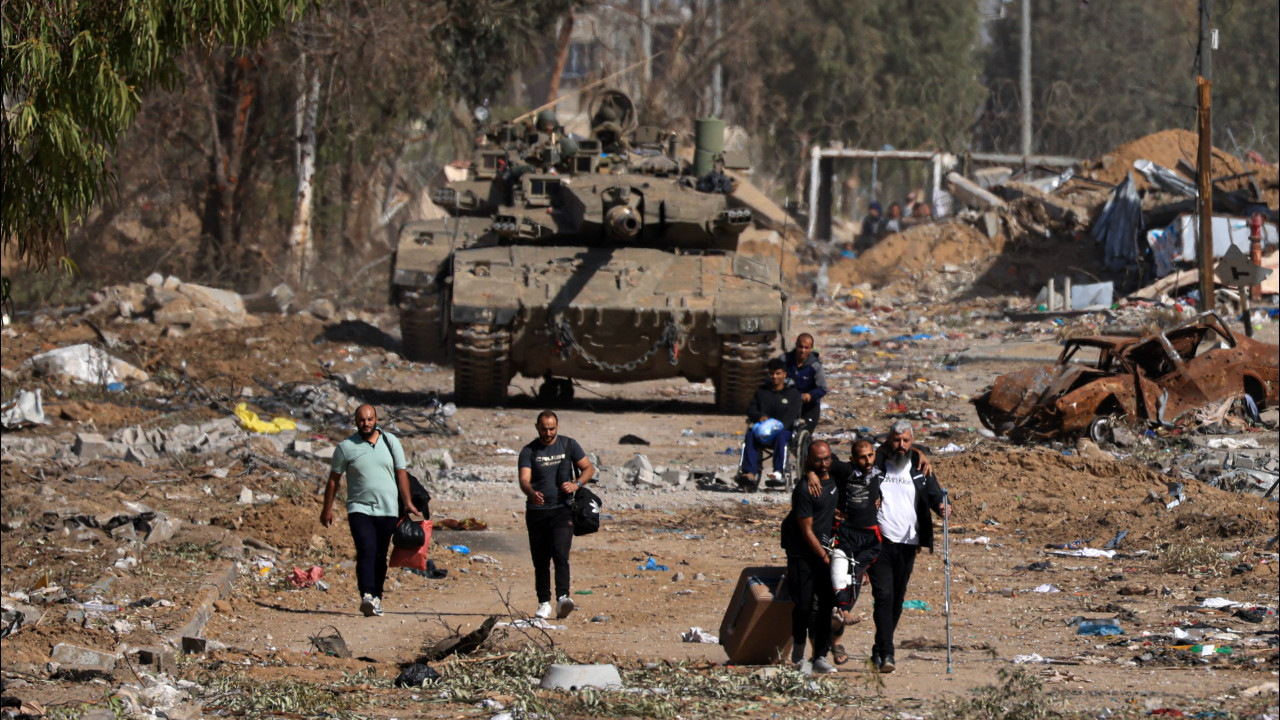
Nbriefing the press on the situation in the Palestinian enclave, the head of the United Nations Office for the Coordination of Humanitarian Affairs (OCHA) in the Occupied Palestinian Territory, Andrea De Domenico, presented details of the situation in Gaza, after having spent the last three weeks in the war-torn Strip.
“Honestly, I don’t think the UN would be in a place like this anywhere else in the world, in the conditions we are experiencing in Gaza, if it weren’t for the fact that Gaza is the only place where people cannot escape,” he said. Domenico.
“The Secretary-General promised that the UN would remain to alleviate the suffering of the people of Gaza, whatever the cost. Prolonging this war for six or seven months is simply terrible, but we will stay and do our work,” he assured.
In a report on the situation in Rafah, a city in the south of the Gaza Strip where Israel recently launched an offensive and where dozens of displaced people died in a camp set on fire after air strikes, the OCHA representative told the case of a family that was found burned with its elements embraced, making it impossible to separate the bodies due to the state of incineration.
“I don’t understand how the children are going to recover from this. It’s unimaginable and difficult to describe the trauma they have been through,” he said.
Andrea De Domenico explained that she saw families flee with donkeys loaded with their few belongings in search of a safe place that doesn’t exist.
He also reported that he saw many people by the sea, as it was the only way to wash and endure the unbearable heat they faced inside the tents.
Domenico also said that coordination with the Israeli authorities for the movement of humanitarian aid remains “very complicated”.
The leader of OCHA in Palestine stressed that the main reason why the UN has been able to continue functioning is the trust of the local population, but warned that in recent weeks there has been growing despair and tension in communities and among families themselves, which could lead to a “breaking point” that makes it “impossible to operate”.
To exemplify this situation, the humanitarian leader told the case of two brothers and their families who, due to an argument over a can of chickpeas, cut ties and “lost their network of solidarity and mutual support, which is essential” in situations like this.
The war between Israel and the Islamist group Hamas, which today entered its 241st day and continues to threaten to spread throughout the Middle East region, has so far left more than 36,000 dead in the Gaza Strip, more than 83,000 injured and around 10,000 missing, presumably buried in the rubble, most of them civilians, according to updated figures from local authorities.
The conflict has also caused nearly two million people to be displaced, plunging the overpopulated and poor Palestinian enclave into a serious humanitarian crisis, with more than 1.1 million people in a “situation of catastrophic hunger” that is claiming victims – “the highest number ever recorded” by the UN in studies on food security in the world.
Read Also: Group of UN rapporteurs calls for recognition of Palestine

Download our free App.
Eighth consecutive year Consumer Choice for Online Press and elected product of the year 2024.
* Study by e Netsonda, Nov. and ten. 2023 product of the year – pt.com
Source: https://www.noticiasaominuto.com/mundo/2573824/sistema-humanitario-atingiu-em-gaza-nivel-inedito-de-stress-diz-onu



